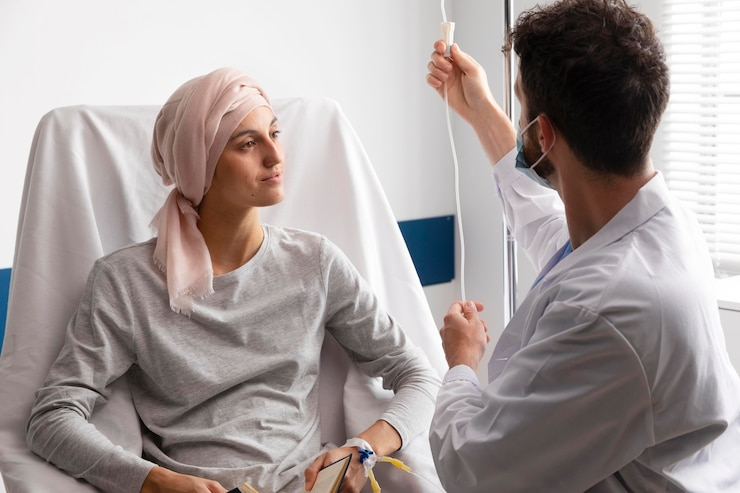Cancer is one of the leading causes of death worldwide. While not all types of cancer are preventable, early detection is often the key to successful treatment. Many people ignore warning signs, assuming they’re minor issues—but recognizing potential symptoms early could save your life.
In this article, we’ll break down common symptoms and indications of cancer, how they vary by type, and when to seek medical advice. This guide is designed to help you understand what’s normal and what could be a red flag.
Why Recognizing Cancer Symptoms Early Matters
Cancer begins when cells in the body grow uncontrollably. The earlier it’s caught, the better the chances for treatment and recovery. Many types of cancer can remain silent in the early stages, so paying attention to subtle physical changes is crucial.
Common Cancer Symptoms Across the Body
While each type of cancer has its own set of symptoms, there are several general signs that may suggest something serious:
1. Unexplained Weight Loss
Sudden, unintended weight loss of more than 10 pounds can be an early sign of cancers like:
- Stomach cancer
- Lung cancer
- Pancreatic cancer
If you haven’t changed your diet or exercise habits, this could indicate your body is using energy to fight an internal problem.
2. Persistent Fatigue
Cancer-related fatigue is not just feeling tired—it’s a deep, unrelenting exhaustion that doesn’t improve with rest. It’s a common symptom in leukemia, colon cancer, and some lymphomas.
3. Pain That Won’t Go Away
Ongoing pain in a specific area could be linked to cancer. For example:
- Headaches → Brain tumor
- Back pain → Bone or ovarian cancer
- Chest pain → Lung cancer
Chronic pain should always be evaluated by a healthcare professional.
4. Skin Changes
Your skin can reflect internal health. Warning signs include:
- Darkened or yellowish skin
- Itching or redness
- Sores that don’t heal
- Changes in moles (size, shape, color)
These may be signs of skin cancer or an internal issue.
5. Lumps or Swellings
A new lump or thickening under the skin (especially in the breast, testicles, or lymph nodes) could indicate:
- Breast cancer
- Testicular cancer
- Lymphoma
Always have new or growing lumps examined.
6. Changes in Bowel or Bladder Habits
Long-term changes may point to cancers of the:
- Colon (diarrhea, constipation, blood in stool)
- Bladder (frequent urination, blood in urine)
- Prostate (difficulty urinating)
Don’t dismiss these symptoms if they persist for more than a few weeks.
7. Unusual Bleeding or Discharge
Unexpected bleeding can be a major warning sign:
- Vaginal bleeding outside of periods → Uterine or cervical cancer
- Blood in stool or urine → Colon or bladder cancer
- Coughing up blood → Lung cancer
Seek immediate medical advice for unexplained bleeding.
8. Nagging Cough or Hoarseness
A persistent cough, especially if it’s dry or worsens over time, can signal:
- Lung cancer
- Throat cancer
- Thyroid cancer
If you’re not recovering after several weeks, consult a doctor.
9. Difficulty Swallowing or Persistent Indigestion
Swallowing issues or a constant feeling of food “sticking” in the throat could be related to:
- Esophageal cancer
- Stomach cancer
- Throat cancer
Indigestion that doesn’t improve with antacids should also be investigated.
Symptoms Specific to Certain Cancers
While many signs are general, some symptoms are more closely tied to specific cancers:
- Leukemia: Frequent infections, bruising, pale skin
- Liver cancer: Jaundice, swelling in the abdomen
- Ovarian cancer: Bloating, pelvic pain, feeling full quickly
- Brain cancer: Seizures, vision changes, personality shifts
- Oral cancer: Mouth sores that don’t heal, white patches on the tongue
When to See a Doctor
If you experience any of the above symptoms for more than 2–3 weeks, or they’re getting worse, it’s important to consult your healthcare provider. You don’t need to panic—most symptoms are caused by non-cancerous conditions—but it’s better to rule out serious issues early.
Early Detection Saves Lives
Many cancers can be treated more effectively when caught early. Regular screenings, such as:
- Pap smears for cervical cancer
- Mammograms for breast cancer
- Colonoscopy for colon cancer
- PSA tests for prostate cancer
…can detect cancers before symptoms appear.
Final Thoughts
Cancer can affect anyone, but staying informed and proactive about your health gives you the best chance for early detection and treatment. Don’t ignore unusual or persistent symptoms, and prioritize routine health checks, especially if you have a family history of cancer.
Your body sends you signals—listen to them.
Stay Proactive. Stay Informed.
Subscribe to our health newsletter for updates on cancer prevention, wellness tips, and when to get screened. Early action can save your life or the life of someone you love.





